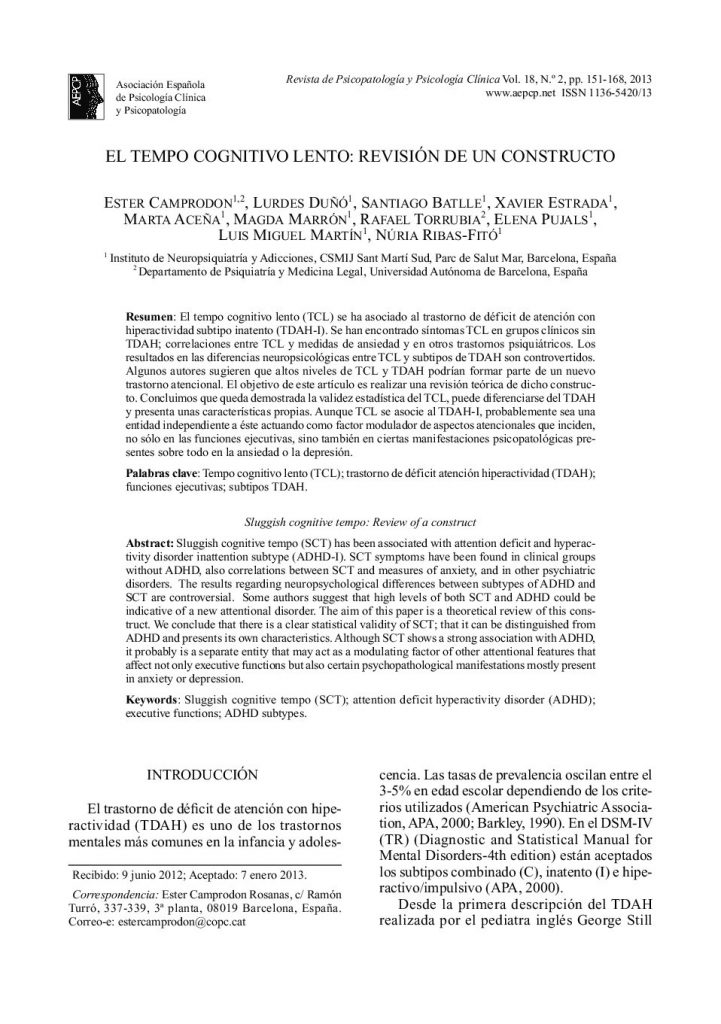El tempo cognitivo lento: Revisión de un constructo.

- Life satisfaction, depressive symptoms and perceived social support in heart failure patients.
- Calidad de vida, resiliencia e ideación suicida en adolescentes víctimas de abuso sexual.
- Agresión física y verbal en hijos de familias monoparentales divorciadas y biparentales: El efecto moderador del sexo de los hijos.
- Anthony P. Morrison, Julia C. Renton, Hazel Dunn, Steve Williams y Richard P. Bentall (2012). Terapia cognitiva de la psicosis: Un enfoque basado en la formulación.
- Afectación emocional de los pacientes ingresados en una unidad de cuidados intensivos.
- Funcionamiento de la terapia cognitivo-interpersonal en los trastornos de la personalidad: Estudio de dos casos.
- El tempo cognitivo lento: Revisión de un constructo.
Sluggish cognitive tempo (SCT) has been associated with attention deficit and hyperactivity disorder inattention subtype (ADHD-I). SCT symptoms have been found in clinical groups without ADHD, also correlations between SCT and measures of anxiety, and in other psychiatric disorders. The results regarding neuropsychological differences between subtypes of ADHD and SCT are controversial. Some authors suggest that high levels of both SCT and ADHD could be indicative of a new attentional disorder. The aim of this paper is a theoretical review of this construct. We conclude that there is a clear statistical validity of SCT; that it can be distinguished from ADHD and presents its own characteristics. Although SCT shows a strong association with ADHD, it probably is a separate entity that may act as a modulating factor of other attentional features that affect not only executive functions but also certain psychopathological manifestations mostly present in anxiety or depression.
El tempo cognitivo lento (TCL) se ha asociado al trastorno de déficit de atención con hiperactividad subtipo inatento (TDAH-I). Se han encontrado síntomas TCL en grupos clínicos sin TDAH; correlaciones entre TCL y medidas de ansiedad y en otros trastornos psiquiátricos. Los resultados en las diferencias neuropsicológicas entre TCL y subtipos de TDAH son controvertidos. Algunos autores sugieren que altos niveles de TCL y TDAH podrían formar parte de un nuevo trastorno atencional. El objetivo de este artículo es realizar una revisión teórica de dicho constructo. Concluimos que queda demostrada la validez estadística del TCL, puede diferenciarse del TDAH y presenta unas características propias. Aunque TCL se asocie al TDAH-I, probablemente sea una entidad independiente a éste actuando como factor modulador de aspectos atencionales que inciden, no sólo en las funciones ejecutivas, sino también en ciertas manifestaciones psicopatológicas presentes sobre todo en la ansiedad o la depresión.



